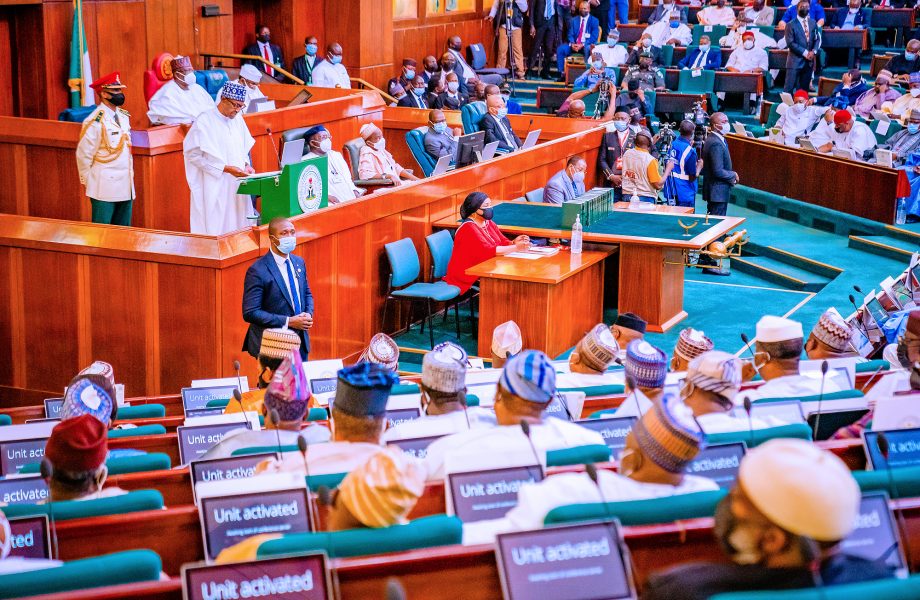Irked by what it called the outrageous National Assembly budget of N228.1 billion for 2023, the Socio-Economic Rights and Accountability Project (SERAP) has urged the leadership of the two chambers of the legislature to pare down the budget.
Some of the outrageous spending the Assembly plans for 2023 include N30.17 billion severance allowances and inauguration costs for newly elected members, the highest in the annals of the nation’s federal legislature.
Both Senate President Ahmad Lawan and Speaker of the House of Representatives, Mr Femi Gbajabiamila, have been asked to comply promptly or face prosecution.
SERAP urged them to propose a refreshed budget for the National Assembly that would reflect the current economic realities in the country, address the debt crisis, and prevent retrogressive economic measures.
Persecondnews recalls that the National Assembly had increased its 2023 budget from N169 billion proposed by President Muhammadu Buhari to N228.1billion.
The approved budget shows an increase of about N59.1billion. The country’s budget of N21.83 trillion is based on a N10.49 trillion revenue, and N11.34 trillion deficit.
Nigeria runs a bicameral legislature established under Section 4 of the Nigerian Constitution, consisting of a Senate with 109 members and the House of Representatives with
360 members.
A letter dated January 14, 2023 and signed by the Deputy Director, Mr Kolawole Oluwadare, sent to Lawan and Gbajabiamila, SERAP said: “It is a grave violation of the public trust and constitutional oath of office for the members of the National Assembly to increase their own budget at a time when some 133 million Nigerians are living in poverty.
“Cutting the National Assembly budget would reduce the growing budget deficit, address the unsustainable debt burden, and serve the public interest.
“By increasing its own budget, the National Assembly has unjustifiably and disproportionately reduced the budget for UBEC. This is a travesty, especially given that Nigeria currently has over 20 million out-of-school children, and half of all poor people in the country are children.
“Rather than exercising its oversight functions to check the persistent borrowing by President Muhammadu Buhari, and scrutinising the apparently unlawful overdrafts and loans obtained by the Federal Government from the Central Bank of Nigeria, the National Assembly is increasing its own budget.
“This outrageous waste of public money would substantially increase the cost of governance, and exacerbate the debt crisis. It is unlawful, and unfair to the Nigerian people.
“We would be grateful if the recommended measures are taken within seven days of the receipt and/or publication of this letter. If we have not heard from you by then, SERAP shall take all appropriate legal actions to compel you and the National Assembly to comply with our request in the public interest.
“The budget should reflect national development priorities, and not serve as a tool to satisfy the lifestyle of lawmakers or provide them with severance payments or parting gifts.
“SERAP is concerned that the National Assembly budget of N228.1billion is higher than the statutory transfer to the Universal Basic Education Commission [UBEC] which is N103.3 billion.”
SERAP pointed out that the National Assembly budget of N228.1billion would increase the country’s borrowing and debt crisis. Growing debt burdens and debt repayment difficulties will have negative impacts on the ability of poor and vulnerable Nigerians to enjoy basic socio-economic rights.
“The leadership and members of the National Assembly should properly discharge their constitutional and fiduciary duties to Nigerians by ensuring judicious spending of public funds, especially given the current economic and financial realities of Nigeria.
“Cutting the budget would show that the National Assembly can discharge its constitutional responsibility of amplifying the voices of Nigerians. It will also show that the body is acting in the best interest of the people,” it said.
























Leave a comment